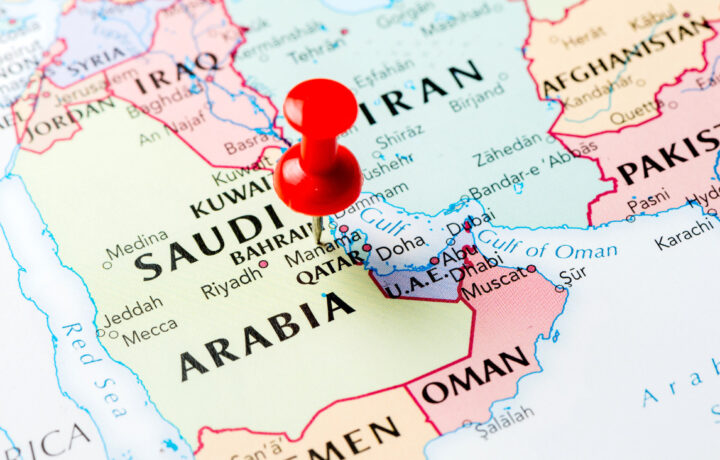During the first foreign trip of his second term, President Donald Trump signed a $142 billion arms deal with Saudi Arabia, which the White House called the “largest defense sales agreement in history.” Trump also claimed that the kingdom’s Crown Prince Mohammed has pledged to invest $600 billion in the United States, including a $20 billion investment to produce artificial intelligence (AI) data centers and the purchase of gas turbines and other energy equipment.
Media reports have suggested that at least some deals with Riyadh bagan under the Biden administration.
Washington’s Complex Relations With the Kingdom
Relations between the Kingdom of Saudi Arabia and the United States of America go back more than 90 years, with the modern relationship largely seen as beginning 80 years ago at the end of the Second World War, and then formalized under the 1951 Mutual Defense Assistance Agreement.
There are key differences between the two nations, however. While the United States is a secular constitutional republic, Saudi Arabia is an Islamic absolute monarchy.
This week’s state visit is also Trump’s second trip to the Middle East. Moreover, six U.S. presidents have visited the Kingdom since 1974, underscoring its enduring influence as a stabilizing force in what has long been a volatile region. The past two decades have also been characterized by both strong cooperation and periods of strain.
“The United States and Saudi Arabia share a common concern for regional security, oil exports and imports, and sustainable development. Close consultations between the U.S. and Saudi Arabia have developed on international, economic, and development issues such as the Middle East peace process and shared interests in the Gulf. The U.S. is Saudi Arabia’s largest trading partner, and Saudi Arabia is the largest U.S. export market in the Middle East,” the U.S. Embassy & Consulates in Saudi Arabia explained.
Saudi Arabia – Buyer of U.S. Military Hardware
According to the Stockholm International Peace Research Institute (SIPRI), the kingdom remains the world’s largest arms importer, with the U.S. being the largest supplier of military hardware to the country. As the Washington Institute highlighted last year, the U.S. may not always have this dynamic with the Middle Eastern nation.
Other countries, including American allies and partners in Europe and Asia, have sought to court Riyadh. Washington has worried that China and Russia could seek to fill any void should the U.S. opt not to sell its military hardware to Saudi Arabia.
This goes well beyond U.S. defense contractors profiting from the sales. Saudi Arabia plays a significant role in the politics of the Middle East, and arms sales are a carrot to keep the country on favorable terms.
Moreover, Saudi Arabia has been a key partner in countering terrorist threats in the region and globally. At the same time, Riyadh and Washington share a common interest in countering Iran’s regional influence.
Areas of Strain
Over the past decades, there have been disagreements over human rights issues. During the 2020 presidential campaign, then-candidate Joe Biden was critical of Saudi Arabia’s human rights record and the murder of Saudi dissident journalist Jamal Khashoggi, while President Biden sought to recalibrate the relations. That included ceasing U.S. military support for the Saudi military’s offensive operations in Yemen, while the Biden Administration also reviewed U.S. arms sales and subsequently suspended two munitions sales.
It was Russia’s unprovoked invasion of Ukraine that highlighted Saudi Arabia’s strategic importance to the United States. Biden traveled to meet with the Crown Prince in July 2022 and finalized new bilateral initiatives.
During the first Trump administration, Washington put arms sales above the killing of Khashoggi, and it looks like the president will again move past it, even as the Crown Prince has been tied to it.
Will the U.S. Help Forge Formal Relations Between Saudi Arabia and Israel?
Even as the Trump visit was seen to conclude numerous deals, one eluded the president, namely, formal relations between Saudi Arabia and Israel, something that the first Trump administration hoped to conclude. The Biden White House also attempted to conclude a deal that would see the Saudis recognize the State of Israel.
The president said it would be “a dream,” but acknowledged that the kingdom will do it on its “own time.”
“The Trump administration has made it clear they are willing to move forward on key agreements with Saudi Arabia without the previous condition of Saudi-Israel normalization,” Anna Jacobs, a non-resident fellow at the Arab Gulf States Institute, told Al Jazeera on Tuesday.
The Crown Prince has said that no formal recognition can come until the fighting is ended in Gaza, but he has also maintained that there must be a Palestinian state as well.
During his first administration, Trump successfully brokered the Abraham Accords between Israel and several Arab nations that included the United Arab Emirates (UAE). Those countries established formal relations without calling for a Palestinian state. The Biden administration also claimed that the Iranian-backed Hamas militant group launched its October 7, 2023 terrorist attack against Israel to derail efforts between the Saudis and Israelis for formal recognition.




